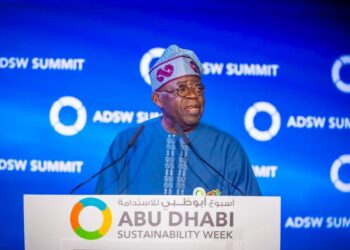Data can help Nigerians make better energy choices as the country implements its energy transition objectives.
This is according to Gbemi Akinsipe, a Research Associate at the Energy Transition Office under Vice President Yemi Osinbajo.
Akinsipe stated this during an online session on the importance of data in Nigeria’s energy transition journey, which took place earlier this week.
Speaking during the session, she said that the use of data in the energy transition cannot be overemphasized. She also noted that four important factors reveal data as an asset to the energy transition process. She said:
- “When you think about the challenge of where we are and where we are starting from and the baseline, you need data for that and the energy transition plan depends on data.”
She highlighted the four factors as follows:
Quantifying the challenge: According to Ms Akinsipe, looking at the energy transition challenge using data and numbers, has helped stakeholders identify the sectors that are currently responsible for the country’s carbon emissions. The sectors are power generation, the industrial sector, oil and gas, cooking using dirty fuels, and transportation.
Designing the solutions: Data is used for proffering solutions to the challenges presented by carbon emissions on the country’s journey to Net Zero by 2060, and Universal Access by 2030 (which is just 7 years away). Ms Akinsipe referred to how stakeholders can take households using firewood to cooking gas also known as liquefied petroleum gas (LPG). She said:
“This will be based on price dynamics, same applies to those using diesel and premium motor spirit (PMS) generators for backup power. In this case, when presented with the data on how much they spend yearly on PMS and diesel as opposed to what they could spend on setting up a solar home system, people can begin to understand what it will take to transition and make better decisions.”
Tracking improvements: In Nigeria’s energy transition journey, it is important to get to a point where Nigerians can calculate emissions reduction. Ms Akinsipe pointed to the fact that anyone trying to reduce their emissions or trade emissions, will need data to track and verify the numbers. Some countries provide platforms for their citizens to calculate their carbon emissions. For example, the United States Environmental Protection Agency (USEPA) offers the Greenhouse Gas Equivalencies Calculator to communicate greenhouse gas reduction strategies, reduction targets, or other initiatives aimed at reducing greenhouse gas emissions.
Advocacy: According to Ms Akinsipe, data is important in advocating for an equitable energy transition. She gave an example of the average Canadian using 60,000 kilowatts per hour of power per year, meanwhile, the average African in the sub-Saharan region uses 380 kWh per year. She highlighted the fact that having these data numbers is important for driving home the message of a just energy transition. She said:
“Data makes knowledge sharing and intergenerational learning possible. Data is very important for different levels of Nigeria’s energy transition plan process.”
For the record: Data is also important for showing the energy disparity between the global south and the global north when advocating for better energy conditions in the global south.























